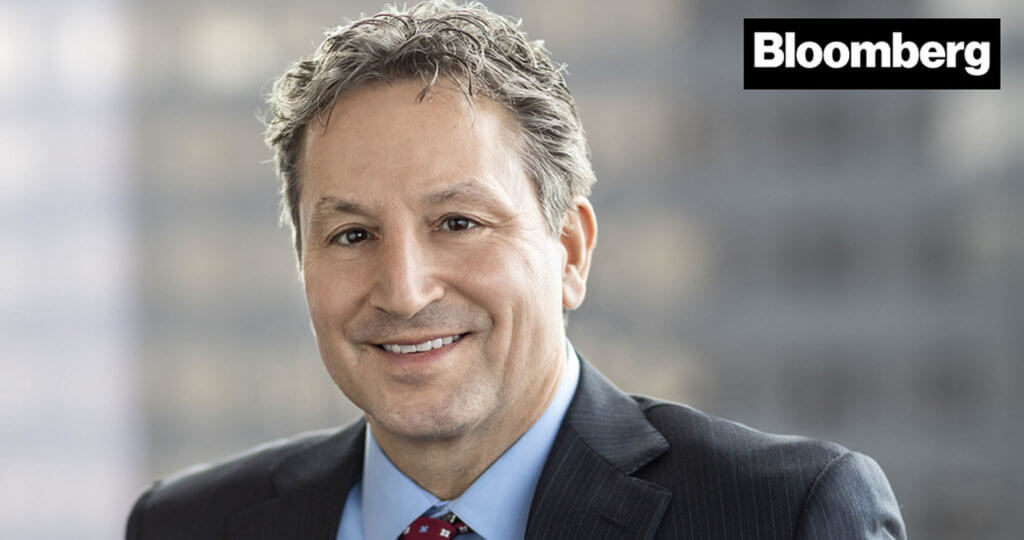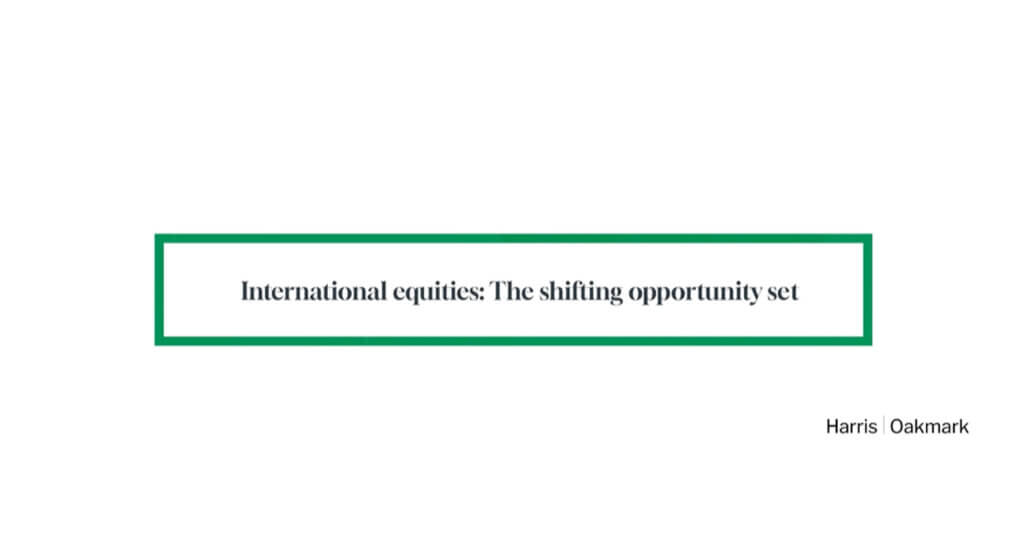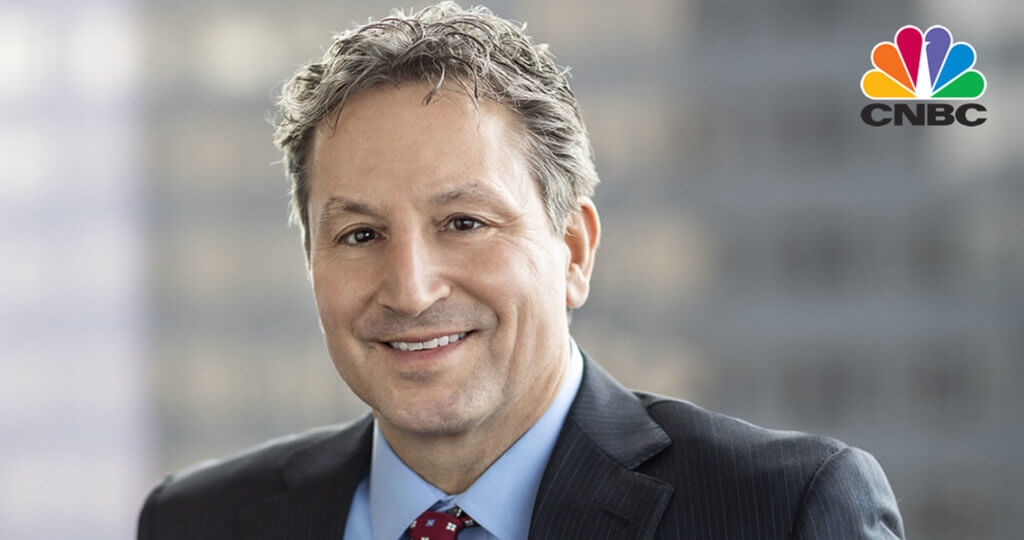Oakmark International Fund – Investor Class
Average Annual Total Returns 09/30/19
Since Inception 09/30/92 9.06%
10-year 6.63%
5-year 2.80%
1-year -6.41%
3-month -0.78%
Gross Expense Ratio as of 09/30/18 was 1.01%
Net Expense Ratio as of 09/30/18 was 0.96%
Past performance is no guarantee of future results. The performance data quoted represents past performance. Current performance may be lower or higher than the performance data quoted. The investment return and principal value vary so that an investor’s shares when redeemed may be worth more or less than the original cost. The To obtain the most recent month-end performance data, view it here.
The Oakmark International Fund declined 6.4% for the fiscal year ended September 30, 2019, underperforming the MSCI World ex U.S. Index, which declined 1.0% over the same period. For the most recent quarter, the Fund declined 0.8%, compared to the benchmark’s decline of 0.9%. However, the Fund has returned an average of 9.1% per year since its inception in September 1992, outperforming the MSCI World ex U.S. Index, which has averaged 5.8% per year over the same period.
NAVER, an internet company based in South Korea, was the largest contributor for both the fiscal year and most recent quarter. The company’s most recent financial results showed accelerated growth in its core search and e-commerce businesses, driven by steady growth in user traffic and improved advertising products. We continue to believe NAVER’s core business will grow at a healthy rate as there remains ample room to partner with advertisers and improve the advertiser’s ROI. In addition to the strong results from its core business, NAVER announced that it will spin out NAVER Financial, its financial technology business. NAVER Financial is the leading digital payments company in South Korea and has significant scope for growth and monetization. Finally, after several years of investment, NAVER’s other platforms, such as Webtoons (one of the largest online comics platforms globally) and V-Live (a live streaming platform for music artists), have begun to monetize and should contribute to strong growth in the future. With accelerating growth, improving profitability and strong market positions across most of its businesses, we continue to believe NAVER is attractively valued.
Continental, a German-based company that is one of Europe’s largest manufacturers of tires, automotive parts and industrial products, was the largest detractor for the quarter, declining 12%. In late July, the company issued preliminary second-quarter earnings results and a second-half profit warning. Although the warning itself was somewhat expected, analysts were surprised by the magnitude of the shortfall. In early August, Continental’s official second-quarter results showed weaker sales and earnings from the year-ago period, largely driven by the automotive division. At the end of the quarter, the company announced a large restructuring program that impacted 15,000 jobs and targeted 500 million euros of cost savings. We believe that this is a good and necessary decision by management and that more restructuring and portfolio actions will follow. Continental’s tire business operates a network of large, modern factories in low-cost countries, which gives the company a benefit over other global tire manufacturers that are burdened with onerous legacy cost structures in smaller, less-automated plants. In its automotive business, Continental has the leading market share in concentrated segments of the automotive supply chain where it derives a good amount of revenue from high value-added components. Further, we believe that secular trends that are affecting the automotive industry, such as connectivity, electrification and autonomous driving, will provide significant growth opportunities in the coming years. Thus, while the company is currently challenged by short-term cyclical issues, we believe it is an attractive long-term investment.
Glencore, based in Switzerland and one of the world’s largest mining firms, was the largest detractor for the fiscal year, declining 26%. Weak commodity prices have hurt the company’s earnings and share price. Although commodity prices are out of the company’s control, management has done an excellent job of maintaining margins across most of its business while working to optimize and ramp production at three sites that have pressured margins and near-term profits. We expect this pressure to ease as production improves at these sites. Shares also retreated on news that the U.S. Commodity Futures Trading Commission (CFTC) was conducting an investigation to determine whether the company’s subsidiaries violated certain Commodity Exchange Act provisions or CFTC regulations. Management has pledged to cooperate with the CFTC and assigned the company’s investigations committee to manage its response. We do not believe this represents a material risk to Glencore’s business. Despite the company’s lower earnings, we were pleased that Glencore generated a healthy amount of free cash flow, reaching $3.1 billion at the end of the most recent reporting period, which was ahead of our estimates. Lastly, the company has repurchased $1.3 billion of the current $2 billion share buyback plan and has intentions to complete the program by the end of 2019. Our investment thesis for Glencore remains intact.
During the quarter, we sold our holdings of Alimentation Couche-Tard (Canada) and Danone (France) as they approached our estimates of intrinsic value. We initiated a position in Henkel (Germany), a manufacturer of adhesive solutions and home and beauty care products; OpenText (Canada), an enterprise information management software and solution provider; and UPM-Kymmene (Finland), a manufacturer and distributor of pulp, graphic paper and pressure-sensitive label materials. We also received shares of Prosus (Netherlands) as part of a corporate action related to our holding of Naspers (South Africa). Prosus is a Dutch holding company that was carved out of Naspers during the third quarter, though Naspers retained a 74% stake in the company. Prosus owns stakes in multiple leading internet businesses, such as Tencent (leading social network in China), Delivery Hero (one of the leading food delivery companies), Mail.ru (largest social network in Russia) and Ctrip (largest OTA in China). In addition, the company has a valuable online classifieds business, called OLX, and also controls stakes in several other private companies. Similar to our investment thesis with Naspers, we are attracted to Prosus due to its valuable internet holdings, management’s strong capital allocation track record and its attractive valuation.
We continue to believe the Swiss franc is overvalued versus the U.S. dollar. As a result, we defensively hedged a portion of the Fund’s exposure. Approximately 14% of the Swiss franc exposure was hedged at quarter end.
Geographically, we ended the quarter with approximately 81.4% of our holdings in Europe and the U.K., 12.0% in Asia and 2.2% in Australasia. The remaining positions are 1.4% in South Africa, 2.0% in North America (Canada and the U.S.) and 0.9% in Latin America (Mexico).
We thank you for your continued support.
The securities mentioned above comprise the following preliminary percentages of the Oakmark International Fund’s total net assets as of 09/30/19: Alimentation Couche-Tard 0%, Continental 3.4%, Ctrip 0%, Danone 0%, Delivery Hero 0%, Glencore 4.0%, Henkel 0.1%, Mail.ru 0%, Naspers 1.4%, NAVER 2.2%, Open Text 0.4%, Prosus 0.8%, Tencent 0% and UPM-Kymmene 0.8%. Portfolio holdings are subject to change without notice and are not intended as recommendations of individual stocks.
The net expense ratio reflects a contractual advisory fee waiver agreement through January 27, 2020.
The MSCI World ex U.S. Index (Net) is a free float-adjusted, market capitalization-weighted index that is designed to measure international developed market equity performance, excluding the U.S. The index covers approximately 85% of the free float-adjusted market capitalization in each country. This benchmark calculates reinvested dividends net of withholding taxes. This index is unmanaged and investors cannot invest directly in this index.
The Fund’s portfolio tends to be invested in a relatively small number of stocks. As a result, the appreciation or depreciation of any one security held by the Fund will have a greater impact on the Fund’s net asset value than it would if the Fund invested in a larger number of securities. Although that strategy has the potential to generate attractive returns over time, it also increases the Fund’s volatility.
The percentages of hedge exposure for each foreign currency are calculated by dividing the market value of all same-currency forward contracts by the market value of the underlying equity exposure to that currency.
Investing in foreign securities presents risks that in some ways may be greater than U.S. investments. Those risks include: currency fluctuation; different regulation, accounting standards, trading practices and levels of available information; generally higher transaction costs; and political risks.
The discussion of the Fund’s investments and investment strategy (including current investment themes, the portfolio managers’ research and investment process, and portfolio characteristics) represents the Fund’s investments and the views of the portfolio managers and Harris Associates L.P., the Fund’s investment adviser, at the time of this letter, and are subject to change without notice.
All information provided is as of 09/30/2019 unless otherwise specified.






